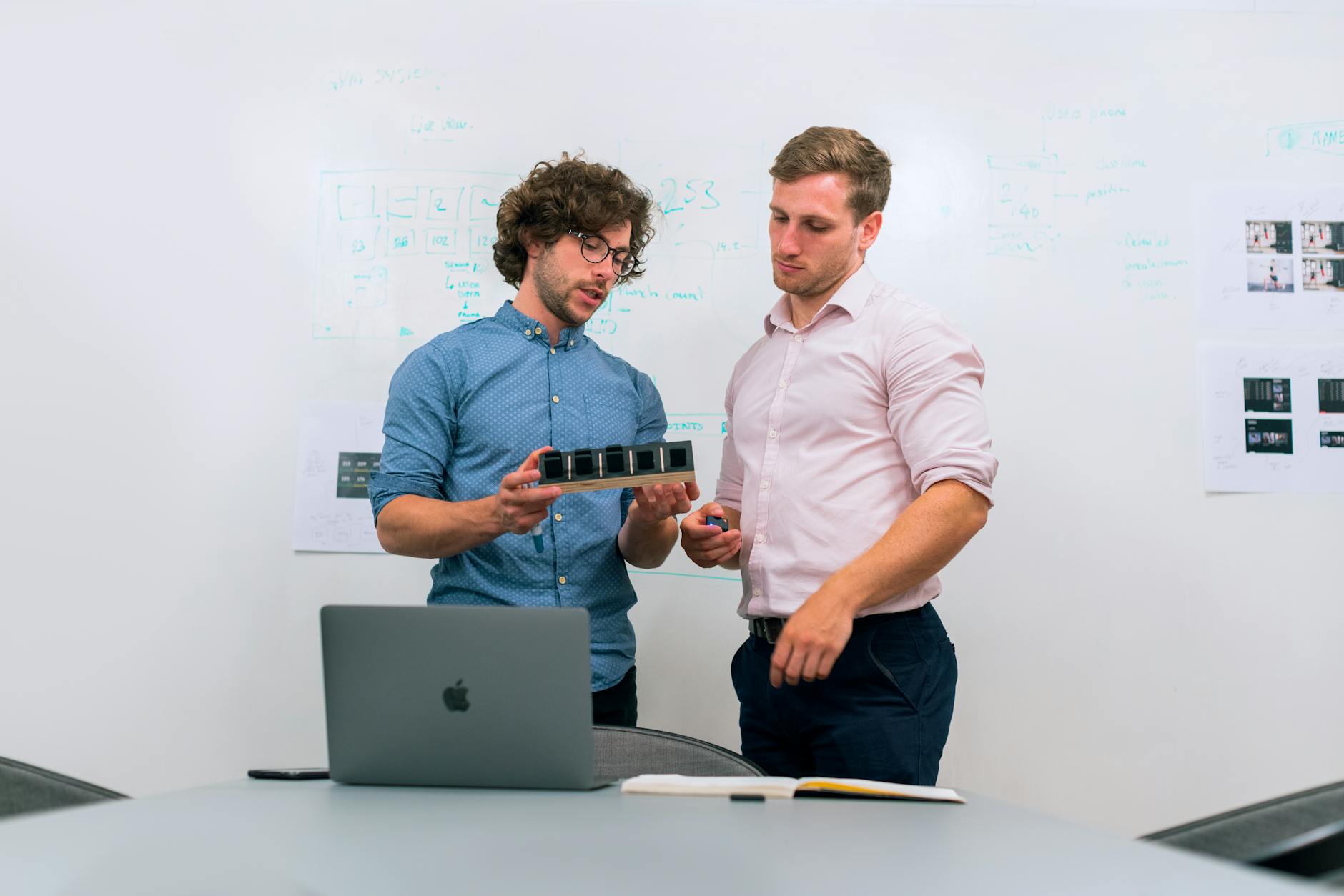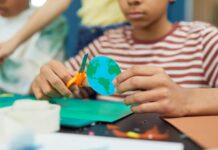
Personal Development Examples
Personal development is an ongoing journey of self-improvement, growth, and expansion of one’s skills and knowledge. It involves taking proactive steps to enhance various aspects of life, including professional success, relationships, health, and overall well-being. Through deliberate efforts and consistent practice, individuals can achieve their full potential and lead fulfilling lives. In this article, we’ll explore various examples of personal development and how they contribute to individual growth and success.
Introduction to Personal Development
What is Personal Development?
Personal development encompasses activities and strategies aimed at improving oneself and achieving personal goals. It involves self-awareness, goal setting, continuous learning, and skill development. Personal development focuses on enhancing various areas of life, including career, relationships, health, and emotional well-being.
Importance of Personal Development
Personal development is essential for individuals seeking self-improvement and growth. It enables individuals to identify their strengths and weaknesses, set meaningful goals, and develop strategies for achieving them. Personal development enhances self-awareness, boosts confidence, and fosters resilience in the face of challenges.
Setting Goals for Personal Development
Defining Goals
Setting clear and achievable goals is crucial for personal development. Goals provide direction and motivation, guiding individuals towards desired outcomes. Whether it’s career advancement, improved relationships, or better health, defining specific goals helps individuals focus their efforts and track their progress.
SMART Criteria for Setting Goals
When setting goals for personal development, it’s important to follow the SMART criteria:
- Specific: Goals should be clear and well-defined.
- Measurable: Goals should be quantifiable, allowing progress to be tracked.
- Achievable: Goals should be realistic and attainable.
- Relevant: Goals should align with personal values and aspirations.
- Time-bound: Goals should have a deadline or timeframe for completion.
Adhering to the SMART criteria increases the likelihood of goal attainment and enhances the effectiveness of personal development efforts.
Time Management Skills
Importance of Time Management
Effective time management is essential for personal development and overall productivity. It involves prioritizing tasks, setting deadlines, and allocating time wisely. By managing time effectively, individuals can accomplish more in less time, reduce stress, and improve work-life balance.
Techniques for Effective Time Management
Some techniques for effective time management include:
- Prioritization: Identifying tasks based on their importance and urgency.
- Time Blocking: Allocating specific time slots for different activities.
- Eliminating Distractions: Minimizing interruptions and staying focused on tasks.
- Setting Deadlines: Establishing deadlines for tasks to stay on track.
- Using Technology: Utilizing productivity tools and apps to manage time efficiently.
By adopting these techniques, individuals can optimize their time and make progress towards their personal and professional goals.
Effective Communication
Importance of Communication in Personal Development
Effective communication is essential for building strong relationships, resolving conflicts, and achieving success in various areas of life. Communication skills play a crucial role in personal development, influencing how individuals express themselves, convey ideas, and connect with others.
Improving Communication Skills
To improve communication skills, individuals can:
- Active Listening: Paying attention to others and responding thoughtfully.
- Clarity and Conciseness: Expressing ideas clearly and succinctly.
- Empathy: Understanding others’ perspectives and showing empathy.
- Nonverbal Communication: Being mindful of body language and facial expressions.
- Conflict Resolution: Resolving conflicts peacefully and finding mutually beneficial solutions.
By honing these communication skills, individuals can enhance their interpersonal relationships and achieve greater success in both personal and professional endeavors.
Building Self-Confidence
Understanding Self-Confidence
Self-confidence is the belief in one’s abilities, worth, and potential for success. It plays a vital role in personal development, influencing how individuals perceive themselves and approach challenges. Building self-confidence involves recognizing strengths, embracing weaknesses, and cultivating a positive self-image.
Techniques for Building Self-Confidence
Some techniques for building self-confidence include:
- Setting Achievable Goals: Breaking larger goals into smaller, manageable tasks.
- Positive Affirmations: Using affirmations to reinforce positive beliefs about oneself.
- Stepping Out of Comfort Zone: Challenging oneself and taking risks to build resilience.
- Seeking Feedback: Soliciting constructive feedback to identify areas for improvement.
- Celebrating Successes: Acknowledging and celebrating achievements, no matter how small.
By practicing these techniques, individuals can boost their self-confidence and approach life’s challenges with courage and optimism.
Emotional Intelligence
Definition and Significance of Emotional Intelligence
Emotional intelligence refers to the ability to recognize, understand, and manage emotions effectively. It plays a crucial role in personal development, influencing how individuals navigate relationships, handle stress, and make decisions. Emotional intelligence encompasses self-awareness, self-regulation, empathy, and social skills.
Developing Emotional Intelligence
To develop emotional intelligence, individuals can:
- Self-Awareness: Reflecting on one’s emotions, thoughts, and behaviors.
- Self-Regulation: Managing emotions and impulses in constructive ways.
- Empathy: Understanding others’ emotions and perspectives.
- Social Skills: Building and maintaining positive relationships with others.
- Conflict Resolution: Resolving conflicts peacefully and empathetically.
By cultivating emotional intelligence, individuals can enhance their interpersonal relationships, make better decisions, and lead more fulfilling lives.
Adaptability and Flexibility
Importance of Adaptability and Flexibility
Adaptability and flexibility are essential skills for personal development, especially in today’s rapidly changing world. These skills enable individuals to adjust to new situations, overcome challenges, and thrive in diverse environments. Adaptability involves being open to change, while flexibility involves being able to adjust plans and priorities as needed.
Strategies for Enhancing Adaptability
Some strategies for enhancing adaptability include:
- Open-Mindedness: Being receptive to new ideas and perspectives.
- Resilience: Bouncing back from setbacks and failures.
- Problem-Solving: Finding creative solutions to unexpected challenges.
- Continuous Learning: Staying curious and seeking opportunities for growth.
- Stress Management: Developing coping mechanisms to deal with stress effectively.
By cultivating adaptability and flexibility, individuals can navigate uncertainties with confidence and resilience.
Continuous Learning
Lifelong Learning Mindset
Continuous learning is essential for personal development and professional growth. It involves adopting a lifelong learning mindset and seeking opportunities to acquire new knowledge, skills, and experiences. Continuous learning enhances adaptability, creativity, and problem-solving abilities.
Ways to Incorporate Continuous Learning into Daily Life
Some ways to incorporate continuous learning into daily life include:
- Reading: Exploring books, articles, and online resources on diverse topics.
- Taking Courses: Enrolling in workshops, classes, or online courses.
- Seeking Mentors: Learning from experienced individuals in relevant fields.
- Networking: Engaging with professionals and peers to exchange ideas and insights.
- Experimentation: Trying new activities and experiences to expand horizons.
By embracing continuous learning, individuals can stay relevant, adaptable, and motivated to pursue their personal and professional goals.
Self-Reflection
Significance of Self-Reflection
Self-reflection is a valuable practice for personal development, allowing individuals to introspect and evaluate their thoughts, feelings, and actions. Self-reflection fosters self-awareness, insight, and personal growth by encouraging individuals to learn from their experiences and make positive changes.
Methods for Practicing Self-Reflection
Some methods for practicing self-reflection include:
- Journaling: Writing down thoughts, emotions, and reflections regularly.
- Meditation: Engaging in mindfulness practices to quiet the mind and reflect inwardly.
- Asking Questions: Prompting oneself with questions to stimulate introspection and insight.
- Feedback Seeking: Soliciting feedback from others to gain different perspectives.
- Goal Review: Reflecting on progress towards personal and professional goals.
By incorporating self-reflection into daily routines, individuals can gain clarity, self-awareness, and direction in their lives.
Healthy Lifestyle Habits
Connection Between Personal Development and Health
Personal development and health are interconnected, with each influencing the other significantly. Adopting healthy lifestyle habits is essential for supporting personal growth, enhancing well-being, and achieving long-term success. Healthy habits encompass physical, mental, and emotional aspects of wellness.
Examples of Healthy Lifestyle Habits
Some examples of healthy lifestyle habits include:
- Regular Exercise: Engaging in physical activity to improve fitness and vitality.
- Balanced Diet: Eating nutritious foods to fuel the body and mind.
- Adequate Sleep: Prioritizing rest and recovery for optimal health and cognitive function.
- Stress Management: Practicing relaxation techniques to reduce stress and promote relaxation.
- Mindfulness Practices: Cultivating mindfulness through meditation, yoga, or deep breathing exercises.
By adopting these healthy lifestyle habits, individuals can support their personal development journey and enhance their overall quality of life.
Overcoming Challenges
Dealing with Setbacks and Failures
Challenges, setbacks, and failures are inevitable parts of life and personal development. How individuals respond to these challenges determines their resilience, growth, and success. Overcoming challenges involves embracing adversity, learning from failures, and persevering in the face of obstacles.
Strategies for Overcoming Obstacles
Some strategies for overcoming obstacles include:
- Positive Mindset: Maintaining optimism and resilience in challenging situations.
- Problem-Solving Skills: Identifying solutions and taking proactive steps to address challenges.
- Seeking Support: Reaching out to friends, family, or mentors for guidance and encouragement.
- Learning from Failure: Extracting valuable lessons from setbacks and using them to fuel growth.
- Adaptability: Being flexible and open to alternative approaches when faced with obstacles.
By adopting these strategies, individuals can navigate challenges effectively and emerge stronger and more resilient.
Building Resilience
Importance of Resilience
Resilience is the ability to bounce back from adversity, setbacks, and challenges. It is a crucial skill for personal development, enabling individuals to withstand stress, overcome obstacles, and thrive in the face of adversity. Building resilience involves cultivating mental toughness, emotional strength, and adaptive coping mechanisms.
Techniques for Developing Resilience
Some techniques for developing resilience include:
- Positive Self-Talk: Cultivating a resilient mindset through positive affirmations and self-encouragement.
- Emotional Regulation: Managing emotions effectively and maintaining composure in difficult situations.
- Problem-Solving Skills: Approaching challenges with a proactive attitude and seeking solutions.
- Social Support: Drawing strength from relationships with friends, family, and community.
- Self-Care Practices: Prioritizing self-care activities to recharge and rejuvenate.
By practicing these techniques, individuals can enhance their resilience and navigate life’s challenges with greater ease and confidence.
Networking and Relationship Building
Value of Networking in Personal Development
Networking involves building and maintaining relationships with individuals who can provide support, guidance, and opportunities for personal and professional growth. Networking is essential for personal development, as it enables individuals to expand their social circles, gain new perspectives, and access resources and opportunities.
Tips for Effective Relationship Building
Some tips for effective relationship building include:
- Authenticity: Being genuine and sincere in interactions with others.
- Active Listening: Paying attention to others’ needs, interests, and concerns.
- Reciprocity: Offering support and assistance to others without expecting immediate returns.
- Follow-Up: Following up with contacts and maintaining communication over time.
- Adding Value: Contributing positively to relationships by offering insights, resources, or assistance.
By nurturing meaningful relationships through networking, individuals can enhance their personal and professional development and create opportunities for growth and success.
Mindfulness and Meditation
Benefits of Mindfulness and Meditation
Mindfulness and meditation practices are powerful tools for personal development, promoting relaxation, focus, and emotional well-being. Mindfulness involves being present in the moment and observing thoughts and sensations without judgment. Meditation involves training the mind to achieve a state of inner peace and tranquility.
Incorporating Mindfulness Practices into Daily Routine
Some ways to incorporate mindfulness practices into daily routine include:
- Mindful Breathing: Taking deep breaths and focusing on the sensations of inhaling and exhaling.
- Body Scan: Observing sensations in different parts of the body and releasing tension.
- Mindful Eating: Paying attention to the flavors, textures, and sensations while eating.
- Walking Meditation: Practicing mindfulness while walking, focusing on each step and breath.
- Guided Meditation: Listening to guided meditation recordings to facilitate relaxation and focus.
By incorporating mindfulness practices into daily routines, individuals can reduce stress, enhance focus, and cultivate a greater sense of well-being.
Conclusion
Personal development is a journey of self-discovery, growth, and transformation. By setting meaningful goals, cultivating essential skills, and adopting healthy habits, individuals can unlock their full potential and lead fulfilling lives. Embracing continuous learning, resilience, and self-awareness is key to personal development success. By integrating these principles into daily life, individuals can navigate challenges with confidence, build strong relationships, and achieve their goals.
Personal Development Plan for Work
Personal Development Plan for Employees
Unique FAQs
- What are some examples of personal development goals?
- Personal development goals may include improving communication skills, advancing in a career, fostering healthier relationships, or adopting healthier lifestyle habits.
- How can I measure my progress in personal development?
- Progress in personal development can be measured by tracking goal attainment, reflecting on personal growth, and evaluating changes in behavior and mindset over time.
- What role does self-awareness play in personal development?
- Self-awareness is essential in personal development as it enables individuals to understand their strengths, weaknesses, values, and motivations, guiding them towards meaningful goals and actions.
- How can I overcome procrastination and stay motivated in personal development?
- Overcoming procrastination involves breaking tasks into smaller, manageable steps, setting deadlines, and creating a supportive environment. Staying motivated requires identifying intrinsic motivations, celebrating small wins, and visualizing success.
- Is personal development a lifelong process?
- Yes, personal development is a lifelong process of self-discovery, growth, and improvement. It involves continuous learning, adaptation to change, and self-reflection to achieve ongoing growth and fulfillment.






















